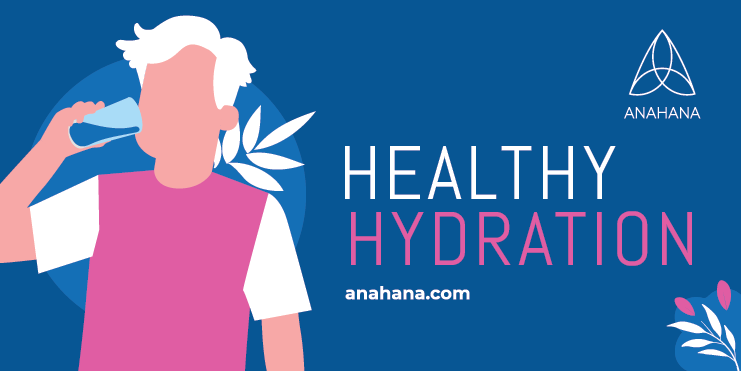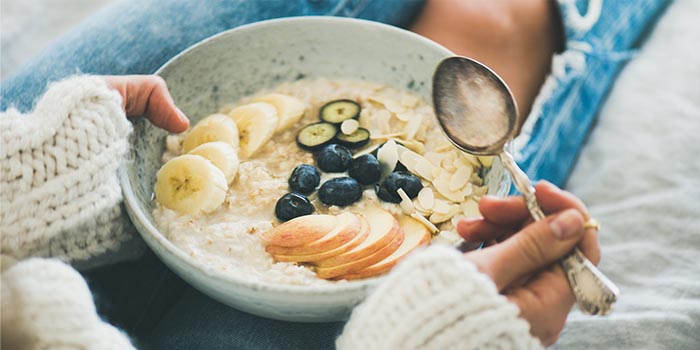Hydration
It goes without saying that water is critical to our survival, health, and longevity. Yet there are still many unanswered questions about this...
A habit is a behavior that requires little thought or effort to carry out because you have become so accustomed to doing it. Habits tend to be automatic, uncontrolled, and almost unintentional.

A habit is a behavior that requires little thought or effort to carry out because you have become so accustomed to doing it. Habits tend to be automatic, uncontrolled, and almost unintentional.
For example, if you are someone who buckles your seatbelt every time you get in the car, you probably don't even think about doing it. When you put on your seatbelt, it's like you're on autopilot. This is a habit.
Healthy habits are habits that promote health and wellness in your life — like exercising, eating a healthy diet, getting plenty of sleep, and socializing with friends.
Of course, important habits don’t always have to do with your physical health. An important habit can be a beauty habit, a mental habit, a habit of manners, or even a habit you use when socializing with others. Basically, habits of health are worth cultivating.
Bad habits are just like good habits in that they are rote, and you probably hardly think about them before carrying them out.
There are many examples of bad habits, and everyone will have their own bad habits — some of which may actually be good habits or important habits for someone else!
Overall, however, bad habits are "bad" because they cause you harm — either right away or over time. Healthy people tend to have fewer bad habits, but that doesn’t mean they have none at all. It’s all about balance. One of the major bad habits we have is our inability to handle stress properly.
The problem with habits that are distinguished as "bad" is that they're difficult to break. Any habit, good or bad, can be hard to break.
If you are able to break bad habits and cultivate healthy ones, however, it can change your life for the better in a multitude of ways.
Here are some of the benefits you can look forward to if you can cultivate more healthy daily habits in your life.
Living a fit and healthy lifestyle offers its own rewards. For instance, healthy sleep habits will directly lead to less stress and fewer colds and illnesses.
Still, many people think of important habits like sleeping more, eating well-balanced meals, and exercising as time and energy suck. It’s a common misunderstanding that, when you invest in yourself by forming healthy habits, you’re unfortunately losing that time.
In fact, the opposite is true. When you start healthy eating habits, sleeping habits, and exercise habits, you’re actually giving yourself more energy! And more energy means more time and drive to do the things you love. A healthy habit keeps on giving.
With a healthy immune system, you’ll get sick less often, feel happier, look better, and live longer. But like all systems in your body, your immune system needs special attention.
If you want to get healthy and develop good habits to have for a healthy immune system, start cultivating these important habits:
Eat a healthy, well-balanced diet
Exercise at least five times a week
Drink alcohol in moderation
Don’t smoke
Maintain a healthy weight
Minimize stress as much as possible
Whether you've always been at a healthy weight or you’ve recently lost excess weight and are now at the point of maintaining it, keeping track of your weight can be a challenge.
Without a doubt, forming healthy eating habits can help you lose unwanted weight and maintain a healthy weight without having to think about it. Here is a list of habits that will help in this area:
Daily exercise. Make exercise a habit by working it into your day naturally. Walk or bike to work, if you can. Do a short digital workout right before bed. Or, schedule an online exercise yoga class for a certain day of the week. Pilates is another alternative.
More fruits and vegetables. Aim to never eat a meal or snack without at least one vegetable or fruit being included.
Drink water. Keep a water bottle with you all day. Sometimes, when you feel inclined to reach for a sugary snack, it’s not actually because you’re hungry; you may just be thirsty.
According to The American Council on Exercise, walking just 30 minutes a day lowers your risk of early death.
This simple act can be easily incorporated into your routine as a healthy habit. You don’t even need to walk 30 minutes all in one go.
Instead, focus on developing good habits like parking at the back of the parking lot when you go shopping, using the stairs instead of the elevator, or taking a quick walk around the block after dinner.
If you can work these habits into your daily life, you can add up all your walking minutes, and you’ll easily get in 30 minutes or more of exercise every day.
We all wish for world peace, but world peace will never be achieved unless we first establish peace within our own minds.
― Geshe Kelsang Gyatso
 There are numerous good habits to start, and one commonality between nearly all of them is an improved mood. When your life is full of healthy habits, you will feel like a happy child.
There are numerous good habits to start, and one commonality between nearly all of them is an improved mood. When your life is full of healthy habits, you will feel like a happy child.
In part, this is because healthy habits (exercise, eating better, getting more sleep, etc.) promote endorphins in the brain. More endorphins (special brain chemicals) mean a happier and more contented attitude.
But healthy lifestyle habits can also improve your mindset because it feels good to carry through with a goal. When we strive to start a new habit and actually follow through, this boosts our mood and lifts our confidence.
In large part, your habits make up everything you do. For many people, a day can be broken down into various habits: waking up at a certain time, eating a certain thing for breakfast, taking a certain route to work, etc.
If you can harness your habits and only focus on doing those that actually enhance and improve your life, you will reap a world of benefits.
Some sources say that a new habit can be instilled by practicing the desired behavior for 21 days in a row. This is a good place to start, but there are other ways to cultivate habits too.
For example, you can help yourself get into the habit of eating a healthier diet by simply not allowing there to be unhealthy foods in your kitchen. Alternatively, you can have a friend or loved one hold you accountable for starting a new habit — for example, if you commit to meeting a buddy at the gym three times a week.
This really depends on the habit, the person, the actual specifics of the goal, and the circumstances. For some people and with some habits, it may take just 10 or 12 days to start a new behavior. For other people and for other goal habits, it may take six months or more.
Some bad habits that you should absolutely try to avoid include:
Smoking
Excessive drinking
Consuming an excess of processed food
Spending time with people who treat you badly or who are a bad influence
Not getting enough sleep
Not exercising
Not getting enough quality sleep
If you are looking to cultivate new important habits, consider these five healthy habits to get you started:
Exercising at least five times a week
Drinking at least eight 8-ounce glasses of water every day
Getting at least eight hours of sleep every night
Eating breakfast every day
Eating six to eight servings of vegetables and/or fruits every day
https://www.health.harvard.edu/healthbeat/eating-to-boost-energy
https://www.health.harvard.edu/staying-healthy/how-to-boost-your-immune-system
https://hub.jhu.edu/at-work/2020/01/15/focus-on-wellness-drinking-more-water/
https://www.acefitness.org/education-and-resources/lifestyle/blog/6614/a-walk-a-day

It goes without saying that water is critical to our survival, health, and longevity. Yet there are still many unanswered questions about this...

Chances are, you don’t think much about the way you chew — and who could blame you? It’s not something we really focus on when we are eating....

Today, more than ever before, a focus on mental health and holistic wellness is the new norm for the workplace. This is mainly due to the wave of...